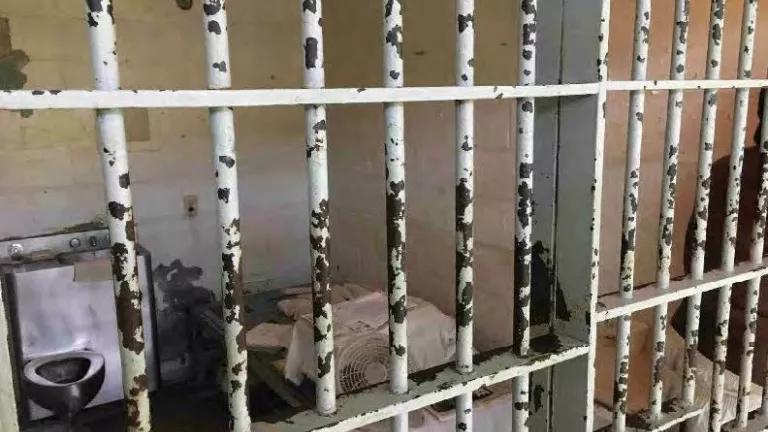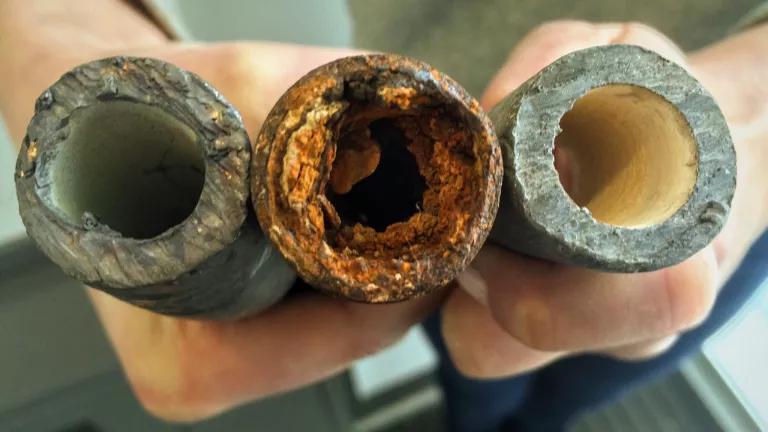Chicago Ready to Call on Congress to Ensure Access to Water

On Tuesday May 12th, I was invited by the Chicago City Council’s Committee on Economic, Capital and Technology Development to provide testimony on a Resolution Calling for Federal Funding of Sustainable Water Plan. The resolution, which passed out of Committee by a unanimous vote, calls on U.S. Congress to enact and fund a national low-income water rate assistance program modeled after the Federal Low-Income Home Energy Assistance Program (“LIHEAP”). The resolution recognizes the exacerbated public health inequities faced by low-income residents when they lack access to clean, affordable water.
Speaking before the Committee via video conferencing, I affirmed the need for Chicago, and the rest of our country’s biggest and most impacted cities, to call on Congress to take action while I also encouraged local and state governments to lead by example by creating or expanding their own low-income water rate assistance programs—something the City of Chicago has already began to do this year with its Utility Billing Relief Program. The resolution is set to go before the entire Chicago City Council for a vote on May 20, 2020.
My full testimony can be read here:
Thank you, Mr. Chairman. And thank you to the Committee for inviting me to testify on such an important topic. Again, my name is Jeremy Orr and I’m an attorney with the Natural Resources Defense Council’s Safe Water Initiative.
No person in Chicago, or person anywhere, should have to go without running water in their home. And now more than ever, in the midst of the COVID crisis—where our best defense against the virus is clean water to wash our hands—it has become increasingly evident just how important access to water really is.
But what has also become more apparent during these times, is just how many people don’t have access to water –something that is essential and life-sustaining, far beyond the current crisis. Which is why our federal, state, and local officials must do everything in their power to ensure that everyone has permanent access to water moving forward. And one way to begin to tackle this problem is through the creation a national low-income water rate assistance program.
A low-income water rate assistance program, modeled after the existing Low-Income Home Energy Assistance Program (known as LIHEAP), would be a step in the right direction toward guaranteeing water access for all people. The purpose of LIHEAP is “to assist households with low incomes, particularly those with the lowest incomes that pay a high proportion of household income for home energy, primarily in meeting their immediate home energy needs.” Each year the Federal government appropriates Block Grant funds that every state may apply for in pursuit of directly benefiting households with the lowest incomes. Funds can be used for things like heating and cooling energy costs, bill payment assistance, energy crisis assistance, weatherization, and energy-related home repairs.
And just as the Congress recognized that having heat in the winter and air conditioning in the summer was more than just a privilege to be enjoyed by the few, it must also recognize that water isn’t just a privilege to be accessed only by those who can afford it. And in a place like Chicago, where water rates have more than doubled over the past ten years and more low-income families are paying water rates that account for high proportions of their household expenses, there is a desperate need for measures that can relieve our most impacted communities.
As it stands, there is no Federal water program that is comparable to LIHEAP. And in order for this program to come to fruition, the City of Chicago, and the rest of our country’s largest and most impacted cities, must constantly be calling on the Congress to do more in this area. We need to call on the Congress to not simply create the program, but to also ensure that it is adequately funded. Make no mistake, we have long-faced a water affordability crisis and the Federal government cannot continue to decrease its funding for water infrastructure and expect state and local governments and water suppliers and ratepayers to figure it out on their own. We need Congress to lead. We need a program. We need funding. And we need solutions rooted in social equity and economic justice.
But to be clear, the responsibility of tackling this issue should not fall on Congress alone. State and local governments should be creating and funding their own assistance programs. And while such programs do exist at the local level, such as Chicago’s Utility Billing Relief Program, they are far and few between and often inadequately funded. Chicago and Illinois can set an example for the Federal government to follow by expanding its programs while simultaneously calling on Congress to step up take the lead.
And while this is an issue that impacts every ratepayer within the water system, protecting the health and well-being of our most vulnerable populations by ensuring that they have access to clean water, regardless of income or ability to pay, should be a top priority. Every human being deserves that much. That is why I support this resolution calling on Congress to create a national low-income water rate assistance program.
Thank you for your time and I am happy to answer any questions.



